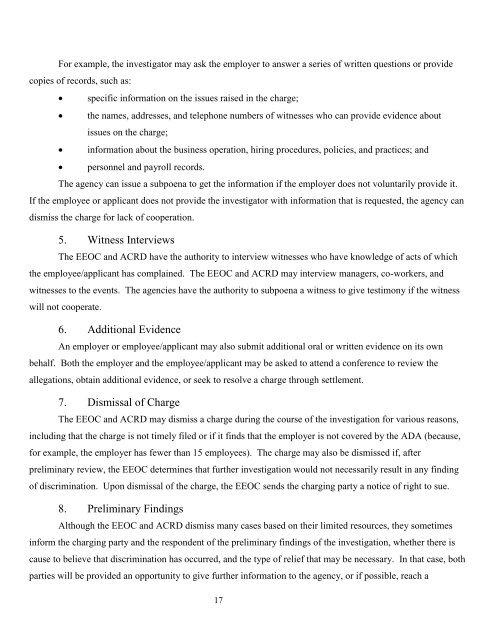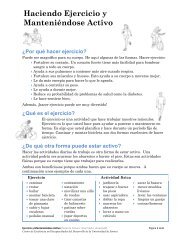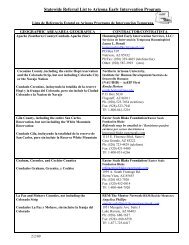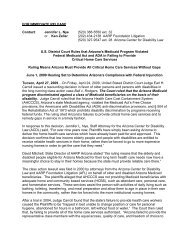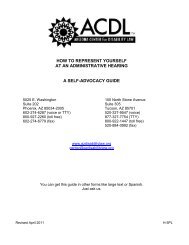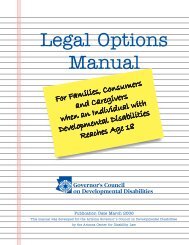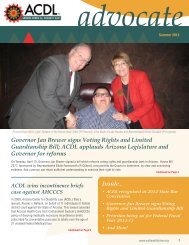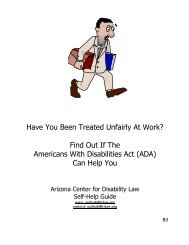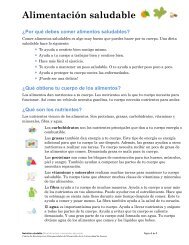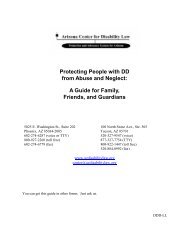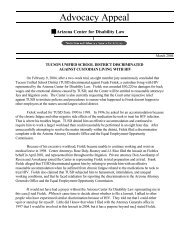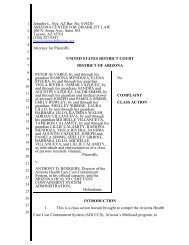How to Enforce Employment Rights Under the Americans with ...
How to Enforce Employment Rights Under the Americans with ...
How to Enforce Employment Rights Under the Americans with ...
You also want an ePaper? Increase the reach of your titles
YUMPU automatically turns print PDFs into web optimized ePapers that Google loves.
For example, <strong>the</strong> investiga<strong>to</strong>r may ask <strong>the</strong> employer <strong>to</strong> answer a series of written questions or providecopies of records, such as: specific information on <strong>the</strong> issues raised in <strong>the</strong> charge; <strong>the</strong> names, addresses, and telephone numbers of witnesses who can provide evidence aboutissues on <strong>the</strong> charge; information about <strong>the</strong> business operation, hiring procedures, policies, and practices; and personnel and payroll records.The agency can issue a subpoena <strong>to</strong> get <strong>the</strong> information if <strong>the</strong> employer does not voluntarily provide it.If <strong>the</strong> employee or applicant does not provide <strong>the</strong> investiga<strong>to</strong>r <strong>with</strong> information that is requested, <strong>the</strong> agency candismiss <strong>the</strong> charge for lack of cooperation.5. Witness InterviewsThe EEOC and ACRD have <strong>the</strong> authority <strong>to</strong> interview witnesses who have knowledge of acts of which<strong>the</strong> employee/applicant has complained. The EEOC and ACRD may interview managers, co-workers, andwitnesses <strong>to</strong> <strong>the</strong> events. The agencies have <strong>the</strong> authority <strong>to</strong> subpoena a witness <strong>to</strong> give testimony if <strong>the</strong> witnesswill not cooperate.6. Additional EvidenceAn employer or employee/applicant may also submit additional oral or written evidence on its ownbehalf. Both <strong>the</strong> employer and <strong>the</strong> employee/applicant may be asked <strong>to</strong> attend a conference <strong>to</strong> review <strong>the</strong>allegations, obtain additional evidence, or seek <strong>to</strong> resolve a charge through settlement.7. Dismissal of ChargeThe EEOC and ACRD may dismiss a charge during <strong>the</strong> course of <strong>the</strong> investigation for various reasons,including that <strong>the</strong> charge is not timely filed or if it finds that <strong>the</strong> employer is not covered by <strong>the</strong> ADA (because,for example, <strong>the</strong> employer has fewer than 15 employees). The charge may also be dismissed if, afterpreliminary review, <strong>the</strong> EEOC determines that fur<strong>the</strong>r investigation would not necessarily result in any findingof discrimination. Upon dismissal of <strong>the</strong> charge, <strong>the</strong> EEOC sends <strong>the</strong> charging party a notice of right <strong>to</strong> sue.8. Preliminary FindingsAlthough <strong>the</strong> EEOC and ACRD dismiss many cases based on <strong>the</strong>ir limited resources, <strong>the</strong>y sometimesinform <strong>the</strong> charging party and <strong>the</strong> respondent of <strong>the</strong> preliminary findings of <strong>the</strong> investigation, whe<strong>the</strong>r <strong>the</strong>re iscause <strong>to</strong> believe that discrimination has occurred, and <strong>the</strong> type of relief that may be necessary. In that case, bothparties will be provided an opportunity <strong>to</strong> give fur<strong>the</strong>r information <strong>to</strong> <strong>the</strong> agency, or if possible, reach a17


